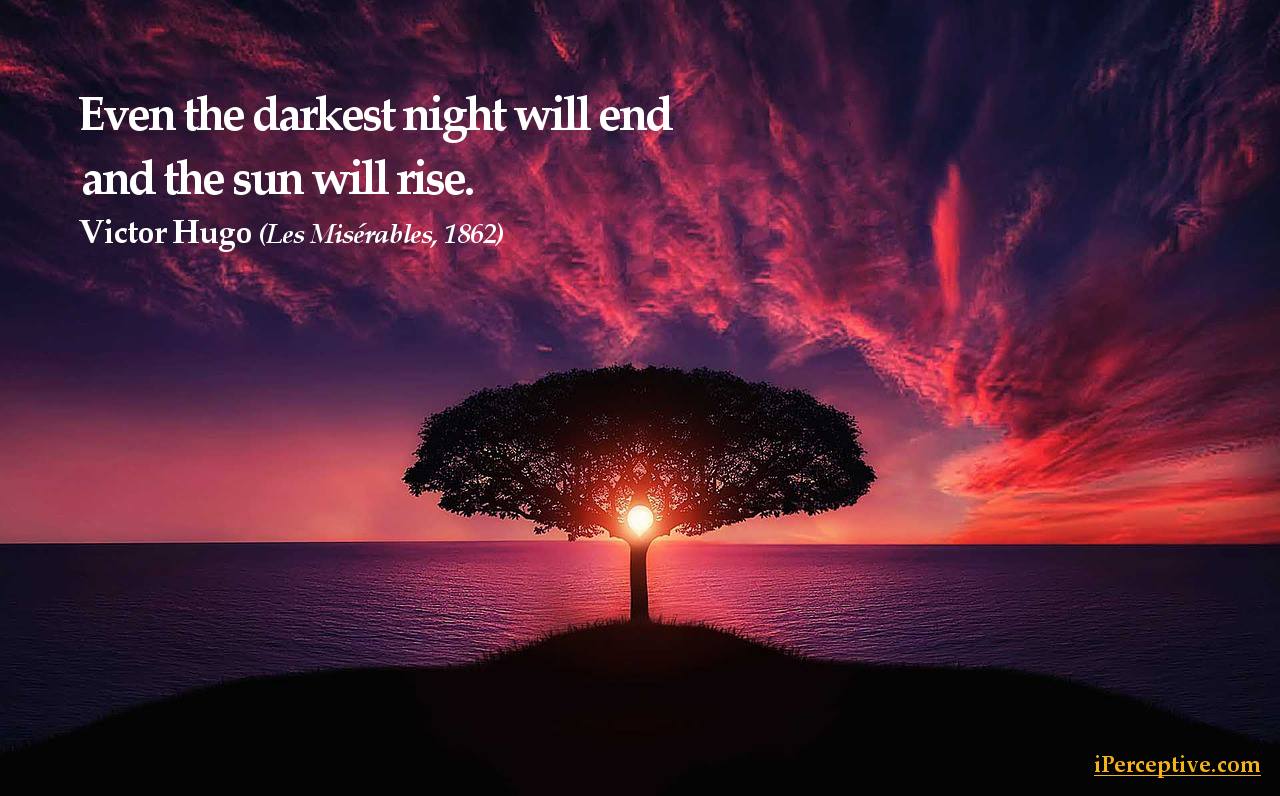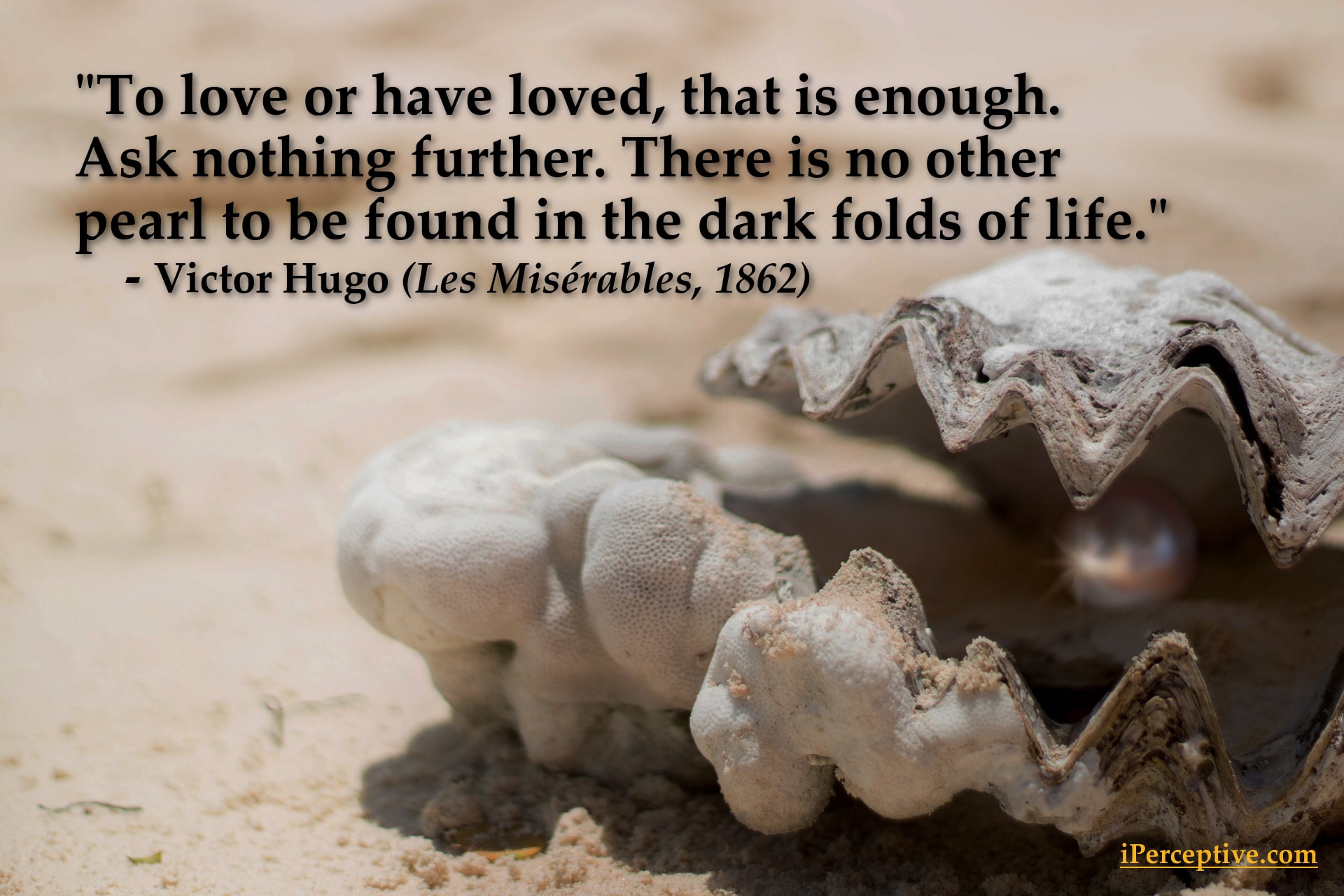Victor Hugo Quotes
To love is to act.
Those who do not weep, do not see.
There shall be no slavery of the mind.
To contemplate is to look at shadows.
I am willing to die, I am not willing to kill.
It is nothing to die. It is frightful not to live.
The learned man knows that he is ignorant.
The wise man does not grow old, but ripens.
Souls of deep thinkers, soar like mighty eagles!
Men become accustomed to poison by degrees.
To love another person is to see the face of God.
Fame must have enemies, as light must have gnats.
 |

|
Even the darkest night will end and the sun will rise.
Our life dreams the Utopia. Our death achieves the Ideal.
This is the battle between day and night... I see black light.
An intelligent hell would be better than a stupid paradise.
Laughter is sunshine, it chases winter from the human face.
Nothing makes a man so adventurous as an empty pocket.
To die for lack of love is horrible. The asphyxia of the soul.
I have been loving you a little more every minute since this morning.
Never laugh at those who suffer; suffer sometimes those who laugh.
I love all men who think, even those who think otherwise than myself.
It is man's consolation that the future is to be a sunrise instead of a sunset.
One resists the invasion of armies; one does not resist the invasion of ideas.
To put everything in balance is good, to put everything in harmony is better.
You who suffer because you love, love still more. To die of love, is to live by it.
Music expresses that which cannot be said and on which it is impossible to be silent.
He never went out without a book under his arm, and he often came back with two.
There is always more misery among the lower classes than there is humanity in the higher.
The soul helps the body, and at certain moments raises it. It is the only bird that sustains its cage.
Let us study things that are no more. It is necessary to understand them, if only to avoid them.
You have enemies? Why, it is the story of every man who has done a great deed or created a new idea.
A man is not idle because he is absorbed in thought. There is visible labor and there is invisible labor.
A day will come when there will be no battlefields, but markets opening to commerce and minds opening to ideas.
To love or have loved, that is enough. Ask nothing further. There is no other pearl to be found in the dark folds of life.


